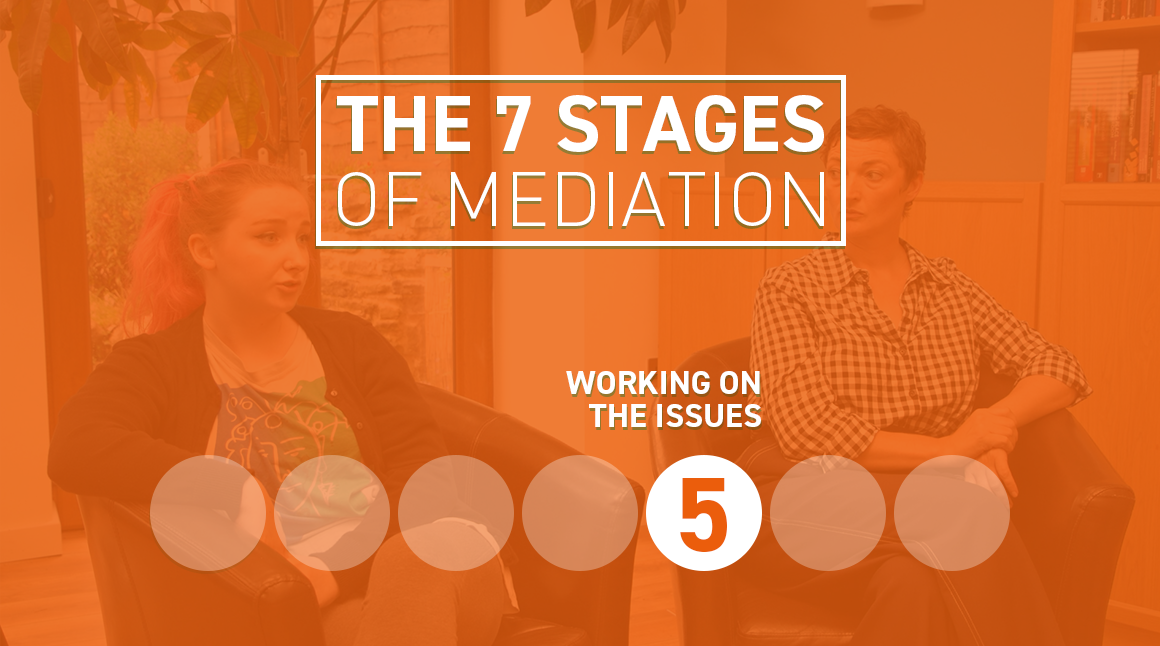
Posted on: October 13th, 2025

Over the last 26 years, UK Mediation has developed and honed our own 7-Stage Mediation Model for interpersonal disputes. Based on Dr Mike Talbot’s pioneering work, as well as experience gained from mediating thousands of cases, the 7 stages cover the entirety of a typical mediation day. This includes the individual meetings with each party, the joint mediation session, and finally the forming of the written agreement.
In this article, we begin working on the issues in Stage Five…
Using the agenda that we put together in Stage Four, we can facilitate a discussion between the parties around each topic in turn. Again, the parties are the ones who decide which issues to discuss and in what order. At this stage, we can take a step back and let the parties discuss directly, but be prepared to step in when needed to keep them on track.
During these discussions, there are often moments when parties’ behaviour offers us a golden opportunity to move the process forward. They could offer up concessions ('Well, I could probably turn it down a bit'), expressions of regret or apologies ('I had no idea it was causing you such a nuisance'), expressions of understanding or recognition ('I hadn't thought of it that way'), or they could even show signs of improved communication (saying clearly and assertively what they want).
Our role as mediators is to seize those opportunities: to notice them, to highlight them to the parties, and to ask them to respond to one another’s constructive contributions.
And when negotiations have opened up sufficiently, we can help the parties to start generating some settlement options. These are all formed in the parties' own words, and we are careful to avoid making suggestions and to begin problem-solving ourselves.
We can, however, encourage them by asking what they would most like to happen, to consider the perspective of the other party, and to encourage some creative thinking. We may also need to narrow any extreme positions that remain (‘Is there another way in between what you are both suggesting?’), or even take a break if required.
Of course, all of the above is if the mediation goes smoothly. In some instances, the communication is not always productive, and can lead to escalation or an impasse. New information may suddenly be introduced, the power imbalance may become too much, or one of the parties might be persistently breaking the rules. We may then decide to introduce side meetings, where we can have a private chat with each of the parties.
Parties can also request a short side meeting if there is something that they want to say, but either they do not know how to, or feel unsafe about doing so. In these cases, we need to spend equal time with each party, and to respect each party’s wishes if they wish to withhold information from the other person.
If things are not progressing at all, it might just be that mediation is not be the best remedy for their particular issue. If a party is not negotiating productively, if a fair negotiation is unlikely, or if the issues are not negotiable, it may be better to end the session altogether. We can then signpost them back to the referrer of the case, or to alternative sources of support.
Assuming that this isn't the case, however, we now move on to Stage Six...